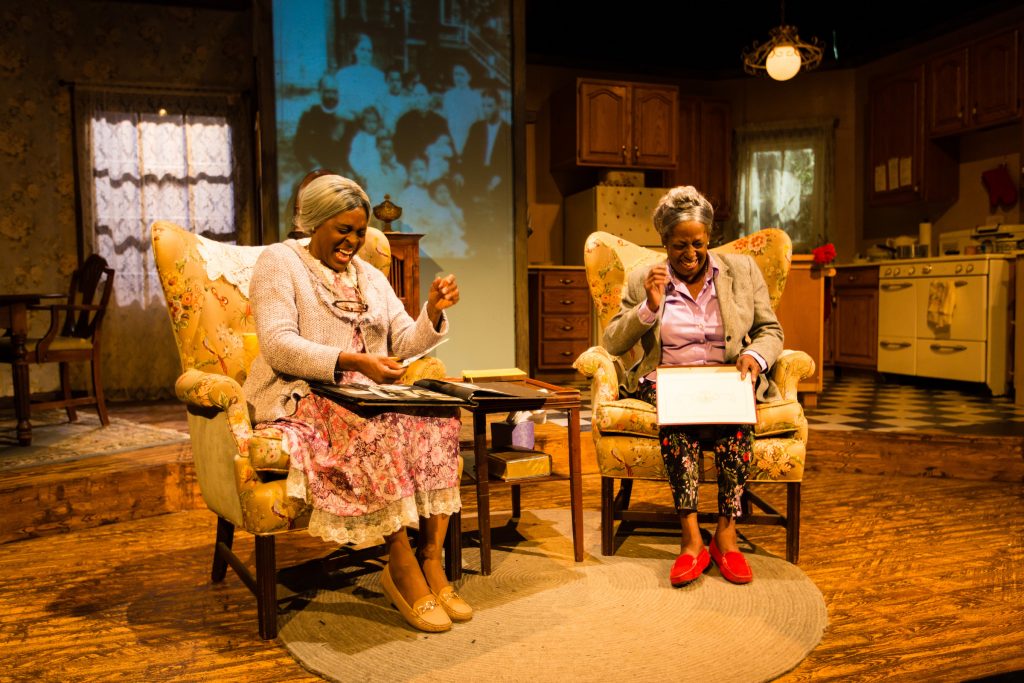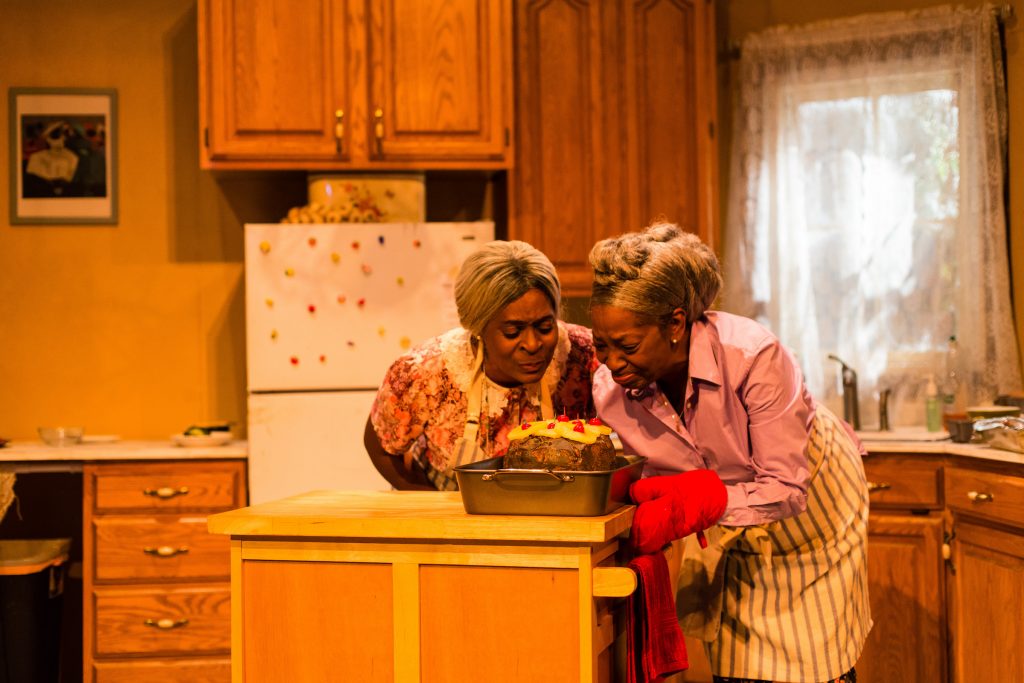Bringing a Century of Memories to Life

Milena (Sellers) Phillips and Sylvia M’Lafi Thompson. (Photos courtesy of Daren Scott.)
Many learned about Sarah L. and A. Elizabeth Delany after journalist, Amy Hill Hearth, interviewed them. Their conversations became the basis for the popular 1993 book, “Having Our Say: The Delany Sisters’ First 100 Years.” About two years later, the book was adapted into a Broadway production.
In New Village Arts Theatre’s version, A. Elizabeth “Bessie” (Sylvia M’Lafi Thompson) and Sarah L. “Sadie” (Milena Sellers Phillips) are depicted as the kind of siblings who finish each other’s sentences. While they get along wonderfully, both of them faced countless incidents of oppression, because of the color of their skin.
“Bessie” and “Sadie” are prideful in being black, although they use the term “colored” when talking about race. Since the 1890s they found ways to overcome racism, sexism and family tragedies.
Emily Mann’s script is made up completely of “Bessie” and “Sadie” talking to the audience or to each other. Any staging needs two actresses who can carry the more than two-hour drama.
Thompson and Phillips earn theatregoers attention quickly by digging deep into the Delaneys’ contrasting personalities. While “Bessie” is candid and frank, “Sadie” comes across as a polite people pleaser.
On opening night, Thompson and Phillips occasionally spoke a bit too early with several lines. However, this minor issue did not detract from the stars’ heroic performances or from Melissa Coleman-Reed’s major directorial debut.
Nothing about Coleman-Reed’s blocking feels amateurish or sloppy. She finds a unique way of mixing the protagonists’ present lives with their past. As they discuss significant and minor events taking place over a century of time, the storyteller allows for each memory to feel distinct.
Also contributing to the time jumping evening is Melanie Chen’s audio and projections. Her use of Martin Luther King Jr. footage, family photos and Nina Simone’s “I Wish I Knew How it Would Feel to be Free” all bring an authentic quality to the numerous flashbacks.
Every sequence from the 1990s takes place in the Delany family’s Mount Vernon, New York house.
“Bessie” and “Sadie” spend plenty of time getting a meal prepared on Christopher Scott Murillo’s set. Guests might be temped to walk onto the stage, because of the welcoming atmosphere created during the evening.
AJ Paulin’s lighting fits the intimate Carlsbad venue. His visuals bring emotion to a sequence when the central duo set the dining room table on the birthday of their late father, Henry Beard Delany.
When chatting at the home, the numerous exchanges range from humorous to horrific. There are very funny moments when the sisters bring up age, food and the afterlife.

Milena (Sellers) Phillips and Sylvia M’Lafi Thompson.
Mann includes disturbing details about the atrocity of violent intolerance and discrimination. “Bessie” in particular recalls traumatic incidents that are equally sad and anger inducing.
A crucial reason why the interpretation does not become unbearable in its intensity is the unbreakable connection between the sisters. There is something refreshing about watching a play where the central siblings actually maintain a strong relationship.
At times comical and revealing, NVA’s rendition offers plenty for fans of factual drama and narratives about sisterly love. Those that don’t know about the Delany Sisters will feel like they’ve become friends with them by the time the eve has ended.
DOWNLOAD CAST AND CREDITS HERE
[box] Show times are Thursdays at 8.00 p.m, Fridays at 8:00 p.m, Saturdays at 3:00 p.m and 8:00 p.m and Sundays at 2:00 p.m. [/box]

A fan of theatre from a young age, David Dixon began writing reviews while in middle school, for Union Tribune’s Rated G column and sdcnn.com. He was the Entertainment Editor for SDSU’s The Daily Aztec. Currently, he contributes to San Diego Community News Network, a regional reviewer for Talkin’ Broadway, an interviewer for San Diego Theatre Reviews and has won several San Diego Press Club Excellence in Journalism Awards. David is a San Diego Theatre Critics Circle member, an American Theatre Critics Association member & Regional Theatre Tony Award voter.


